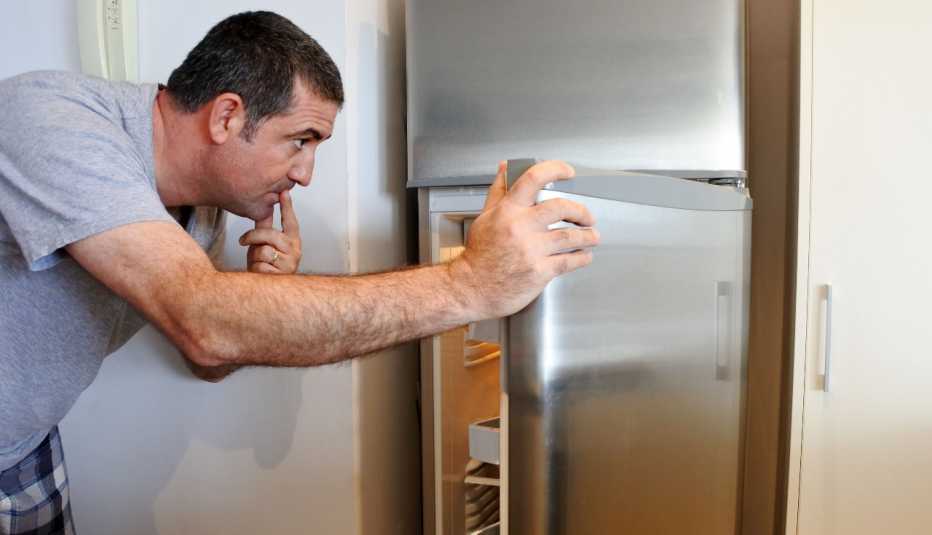Staying Fit


Almost as soon as stay-at-home orders were issued, jokes about the “Quarantine 15” went, well, viral. It seems that even when we're experiencing disaster on a global scale, the one in our bathroom is equally likely to grab our attention.
Given that so many of us have been cut off from our usual routines, food sources and social outlets, the fear of gaining weight during this time is completely warranted. Realizing those fears, however, is far from inevitable.


AARP Membership— $12 for your first year when you sign up for Automatic Renewal
Get instant access to members-only products and hundreds of discounts, a free second membership, and a subscription to AARP the Magazine.
Food and feelings
If memes were around during the last great pandemic — the Spanish flu in 1918 — you probably wouldn't find any about still fitting into your “day pants” (that's slang for pajama bottoms you wear when you're not actually sleeping). That's because obesity really didn't become a major public health issue until after World War II, according to Marion Nestle, author of Food Politics. That it now is a major one, and that early evidence indicates obesity may increase the risk of developing severe COVID-19, understandably heightens fears about packing on extra pounds.
But while few of us want to gain weight, some of us do feel awfully tempted to eat a donut around the time we'd previously have been headed to the gym or running to our first meeting of the day. “There is good literature on the extent to which food is a comfort,” says Carole Counihan, a cultural anthropologist and emerita professor at Millersville University in Pennsylvania. “And of course we know it helps produce endorphins and leads to a soothing, calming effect.” There's also historical precedent to gaining weight during times of great social or emotional upheaval. The Germans have a word for it: kummerspeck, literally “grief bacon.”
Quality vs. quantity
The urge to self-medicate with chips and dip only increases when you're never far from the kitchen. “Having constant access to food at an arm's length can be very challenging,” says Bonnie Taub-Dix, creator of BetterThanDieting.com and author of Read It Before You Eat It. “There's a tendency to be bored or annoyed or anxious, and walk into the kitchen to forage for food.”
If you were panic-buying nonperishables like the rest of us, the food you have constant access to is likely the kind that will leave you craving more: highly processed, sugary or salty (or both), and void of nutrients such as protein and fiber. Alcohol consumption is, understandably, up, and every glass of wine, beer or cocktail packs a double punch by adding empty calories to your diet and lowering your inhibitions about having a second brownie.

































































More on health
What New Fitness Research Means for You
Very short — and easy — strolls add up to big boosts in health and longevity4 Natural Stress Remedies for Right Now
Easy ways to reduce anxiety — and tips for getting a better night's sleep
Smart Shopping Tips During the Pandemic
Update your grocery list with these recipes